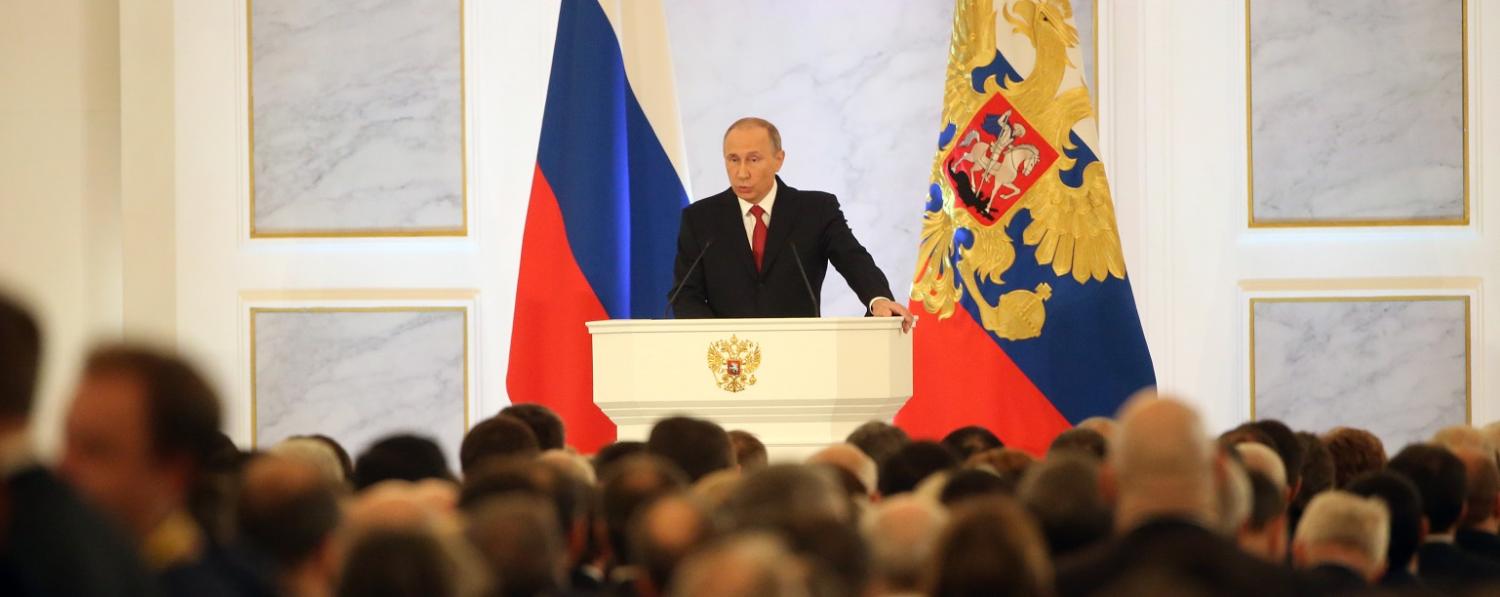Part 1 of this series examined the history of the US sanctions on Russia and differing measures of their success. This post looks at the impact of those sanctions in Central Asia amid many competing interests.
Since 1991 Russia has tried to consolidate its presence in Central Asia. At the same time, competition for influence among the great powers has gained momentum: both the US and China have demonstrated a growing geopolitical engagement with Central Asia.
The US has relied heavily on Tajikistan, Kyrgyzstan and Uzbekistan to enable the free flow of troops and supplies to its combat mission in Afghanistan, while China has become increasingly concerned about the future instability in its western Xinjiang region that could result from a further destabilised Central Asia. And for China to secure permanent access to vital resources from the Middle East it must open up trade routes through South Asia and the Central Asian republics.
Beijing’s ‘One Belt, One Road’ initiative is a geostrategic ploy of the highest order, aiming to tie China to Central Asia’s economy and security at the expense of long-term Russian and US influence in the region. OBOR is arguably a more ambitious project than Moscow’s Eurasian Economic Union (EEU), and one that offers more immediate financial benefits to the struggling economies of Central Asia.
But China, Russia and the US are not the only powers with an interest in Central Asia. India, Iran and Turkey are also making plays to shore up their influence over the region.
Tajikistan, in particular, has been courted by Tehran, Delhi and Ankara. Tehran’s ties with Dushanbe are historic and linguistic, and its geographic proximity to Tajikistan and growing post-sanction economy offer economic opportunities for policy makers in Dushanbe. Tajikistan has walked away from previous commitments to join the EEU thanks in large part to enormous domestic opposition to the project.
The US quest to halt Russia’s expansion
On 6 December 2012, representatives of the 57 nations in the Organisation of Security and Cooperation in Europe (OSCE) gathered in Dublin for its 19th Ministerial Council. The agenda was full.
For the first time in decades, European stability was under threat. Tensions between Russia and Europe had increased. The post-GFC global economy was recovering, but slowly. And there was the Eurasian Customs Union, the bold new multilateral economic plan Moscow had announced the previous year, which would go on to became the precursor to the EEU. When questioned about ECU in Dublin, the then US Secretary of State Hillary Clinton was clear about US opposition. She argued that greater economic integration of Central Asia was merely an attempt to ‘re-Sovietize’ the region, saying the US 'knew what the goal was' and was trying to 'figure out effective ways to slow down or prevent' the ECU.
While Clinton left the State Department at the start of 2013, US antagonism towards Russia’s expansion continued.
Russia’s belligerence in Ukraine, which led to the annexation of Crimea and its ongoing support of unrest in the country’s east, gave the US an opportunity to constrain Russia’s economy, and thus its economic expansion across Eurasia, a goal Clinton had outlined in 2012.
Some contend that the US sanctions have failed to genuinely disrupt the Russian economy, and that all the damage in recent years has come from declining global oil and commodity prices. The truth is the sanctions have had a genuine impact on the Russian economy, and at the very least, have undermined Russia’s credibility as a reliable economic partner.
There is no doubt declining oil prices have hit Russia’s economy hard but the sanctions were imposed with this in mind. Effectively, the US is kicking the Russian economy while it's down, making a bad situation worse for Russia, and limiting its economic expansion beyond its borders.
Watering down sanctions would run counter to US interests
Donald Trump's controversial embrace of Vladimir Putin during his presidential campaign, and the pro-Russian positions of many of his advisors, has called into question the new administration's interest in maintaining Washington’s approach to Russia.
But any watering down of the sanctions would run counter to the interests of the Trump administration and the US in the long-term.
As a self-proclaimed ‘deal-maker’, Trump should realise the sanctions give him leverage. Just like sanctions brought Iran to the negotiating table, so too could Putin be coerced into making deals with Washington. With Russia’s economy still weakening and the Russian presidential election just two years away, a dreary economic outlook could encourage Putin to negotiate on issues central to US interests, such as Eastern European security or even a Syrian peace deal, if the removal or watering down of the sanctions are on the table.
But more broadly, maintaining sanctions on Russia will continue to curtail its ability to integrate Central Asia economically.
The longer Russia is blocked from achieving its goal of Eurasian integration, the more likely it is the Central Asian states that still haven’t signed up to the EEU – Tajikistan, Turkmenistan and Uzbekistan - will look further abroad for their economic futures. If this occurs, it would all but end Putin’s dream of a Eurasia once more united under Moscow’s leadership.
Allowing Central Asia to remain open to the global economy, and less reliant on Putin’s Russia, would increase the likelihood of the region embracing the democratic and economically liberal ideals Washington so hoped for after the collapse of the USSR, instead of further replicating Putin-style kleptocracy.
The US sanctions have not achieved their primary, stated outcome: to coerce Russia into returning Crimea to Ukraine. But that was never likely. What they have achieved – constraining Russia’s economic and foreign policy reach within its sphere of influence – is arguably just as significant.
While Trump might be a Russophile at heart, his country is not. The sanctions are working in a broad geostrategic sense, and he would be wise to keep them in place.
Photo by Mikhail Svetlov/Getty Images

